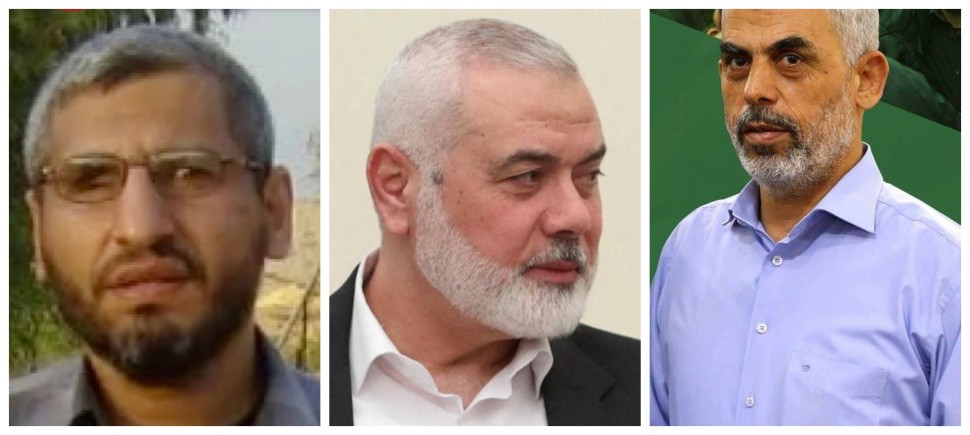
A year after Hamas' October 7 attack, the International Criminal Court has yet to make any arrests of Hamas leaders for war crimes, as political complexities and the deaths of key suspects stall its pursuit of justice.
Earlier this year, the International Criminal Court announced it's seeking arrest warrants for Head of Hamas Yahya Sinwar, Al Qassam Brigades Commander-in-Chief Mohammed Deif, and Head of Hamas Political Bureau Ismail Haniyeh, for war crimes and crimes against humanity committed on Israeli land and in the Gaza strip, stemming from the Oct. 7 attacks, in which over 1,000 people were murdered.
Haniyeh's warrant application was subsequently withdrawn in July, following his assassination in Tehran.
Last month, the ICC said it was looking into the reported death of Deif, whose warrant they say they will also withdraw, if they can confirm he was killed in an airstrike in Gaza over the summer.
Chief Prosecutor Karim Khan said in May there were "reasonable grounds to believe that Sinwar, Deif, and Haniyeh are criminally responsible for the killing of hundreds of Israeli civilians in attacks perpetrated by Hamas... and the taking of at least 245 hostages," according to a statement.
The ICC accused Hamas and its leaders of murder, hostage taking, rape, sexual violence and torture, among a slew of other crimes.
At the same time, Khan is also pushing for arrest warrants for Israeli Prime Minister Benjamin Netanyahu and Israeli Minister of Defense Yoav Gallant for alleged war crimes committed in the Gaza strip in its response to the attack.
The Israeli leaders are accused of using starvation as a method of warfare, willfully killing and causing great suffering, and intentionally directing attacks against civilians, as well as several other charges.
"... Israel has intentionally and systematically deprived the civilian population in all parts of Gaza of objects indispensable to human survival," cutting off food, water, and medicine, Khan alleged in his statement.
While Khan recognized Israel's right to defend itself, its alleged actions do "not absolve Israel or any State of its obligation to comply with international humanitarian law. Notwithstanding any military goals they may have, the means Israel chose to achieve them in Gaza – namely, intentionally causing death, starvation, great suffering, and serious injury to body or health of the civilian population – are criminal."
Israel has since pushed back against the claims, submitting formal challenges against the legality of the requested warrants.
In September, the Israel Foreign Ministry argued the ICC failed "to provide Israel with the opportunity to exercise its right to investigate by itself the claims raised by the Prosecutor, before proceeding," according to Reuters.
Netanyahu described the comparison between Hamas and Israel as "pure antisemitism and a moral disgrace of the highest order" in a statement issued by his office.
In a show of solidarity, President Joe Biden sided with Netanyahu, calling the application for warrants against Israeli leaders "outrageous."
"And let me be clear: whatever this prosecutor might imply, there is no equivalence — none — between Israel and Hamas," he said in a statement earlier this year. "We will always stand with Israel against threats to its security."
While the arrest warrants have not yet been granted, ICC judges can take months to authorize their issue.
On October 7, 2023, Hamas and other Palestinian militant groups launched coordinated incursions from Gaza into southern Israel, beginning with a barrage of 4,300 rockets and armed infiltrations into 21 Israeli communities. A total of 1,139 people were killed, according to Al-Jazeera.




